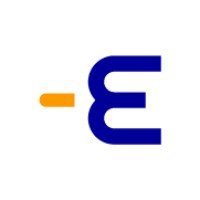Uniper and Port of Rotterdam explore hydrogen plant with imported feedstock an option

Uniper (a German energy company) and the Port of Rotterdam Authority (located in the Netherlands and the largest seaport in Europe) have started exploring the potential for a mega-size green hydrogen production plant at Maasvlakte area in Rotterdam. The preliminary feasibility study which will be completed this summer would look into developing 100 MW by 2025 at the Uniper site. The plant capacity can be expanded to 500 MW at a later stage.
“This feasibility study will indeed also look into options to import (as liquid H2, as ammonia or as liquid organic hydrogen carriers/lohc), store and distribute H2 through the Uniper Maasvlakte site,” Uniper spokesman told H2 Bulletin.
“The port authority is in contact with a number of countries and companies within countries like Iceland, Morocco, Middle East, Uruguay, Australia to see if it is possible to produce hydrogen there (countries with a lot of sunshine, wind or geothermal possibilities and less densely populated than NW Europe) and ship it to Rotterdam, to be used in Rotterdam, other parts of the Netherlands, but also, of course, Germany, as Rotterdam is Germany’s largest port.” the port authority explained to H2 Bulletin
“The option for connecting nearby (industrial) customers via pipeline to nearby H2 consumers and/or other customers in the region or further downstream will also be investigated,” Uniper confirmed to H2 Bulletin.
“We have the ambition to realise a hydrogen plant on the site of Uniper by 2025 with a capacity of 100MW and to expand this capacity to 500MW,” Uniper explained to H2 Bulletin.
Andreas Schierenbeck, CEO of Uniper said: “Our location at Maasvlakte is the perfect place for large-scale production of green hydrogen. This is where everything comes together: large amounts of renewable energy, the required infrastructure, and industrial customers.”
Allard Castelein, CEO Port of Rotterdam Authority: “The production of green hydrogen on the Uniper site fits in perfectly with the strategy of the Port Authority to make the industry more sustainable.”
The Port of Rotterdam has recently been engaged in Brazil to explore green hydrogen in the Ceara region.
In the production of green hydrogen, renewable energy is used to split water into hydrogen and oxygen. This process is called electrolysis. Maasvlakte is an ideal location for the production of green hydrogen. Renewable electricity from offshore wind farms will come ashore here, and various relevant facilities are already available on the Uniper site.
Once the prequalification for the EU IPCEI (Important Projects of Common European Interest) programme completed the work on the design and the hydrogen plant’s technical aspects will be started. The partners will explore opportunities for supplying hydrogen to the local area and Germany. Both partners will look into supplying hydrogen through pipelines to major industrial complexes in North Rhine-Westphalia.
“Whilst this study concentrates on the green hydrogen option, it does not mean that Uniper excludes the blue hydrogen option. For example, Uniper is amongst the participants within the H-vision initiative which aims to develop large scale blue hydrogen production the Rotterdam industrial area,” Uniper pointed out to H2 Bulletin.
“NW Europe uses much more energy than it can locally produce in a sustainable way, so importing energy remains essential in the future. We are expecting a shift from imports of oil and gas to hydrogen.” Port of Rotterdam Authority told H2 Bulletin.
